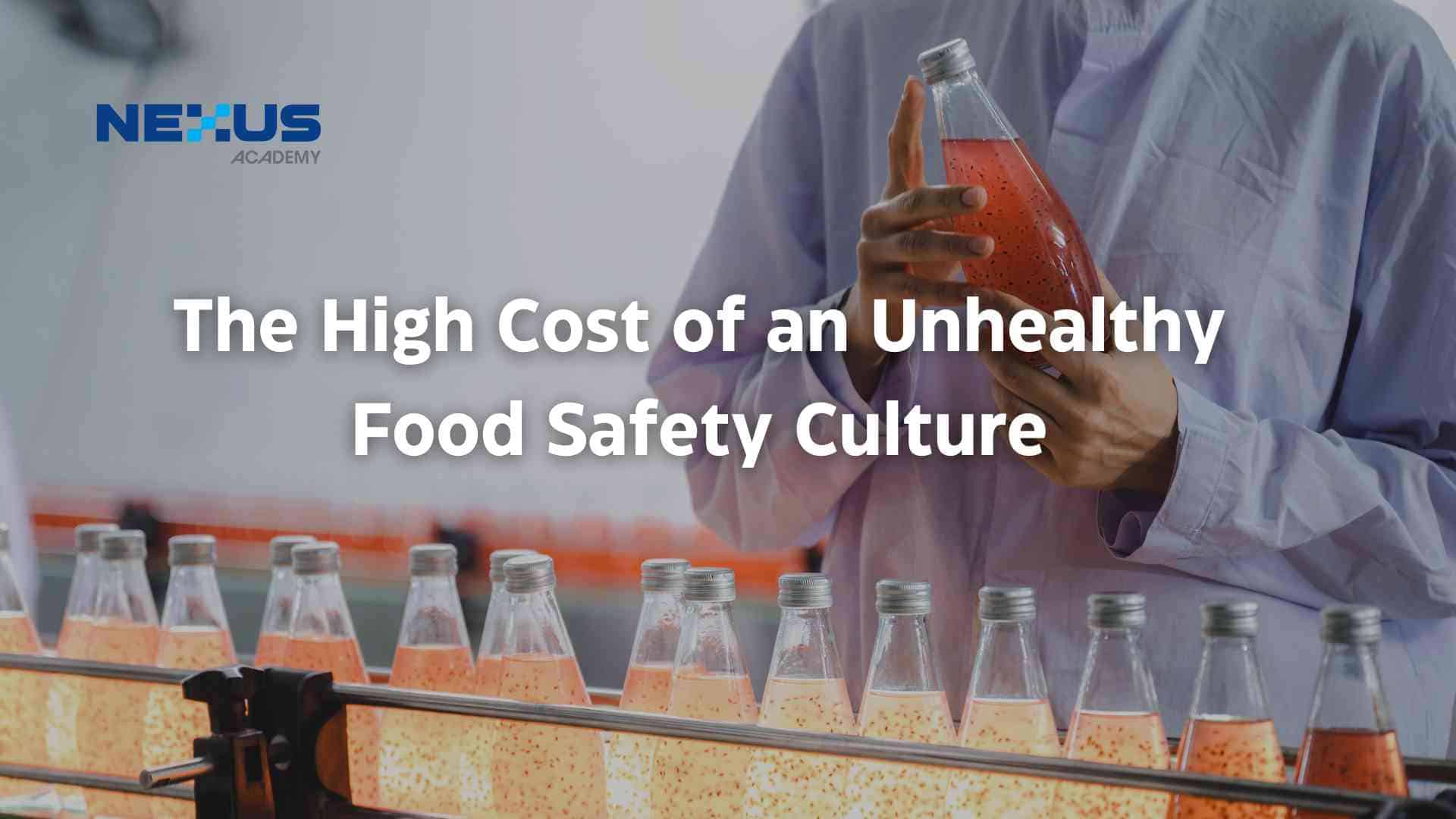
Danielle Tan
Chief Operating Officer
An unhealthy food safety culture can lead to increased risk of foodborne illness outbreaks, loss of sales, regulatory sanctions, loss of permits or licenses, lack of employee engagement, a negative work environment, lack of accountability, and damage to a company’s reputation.

As the world becomes more health-conscious, the importance of maintaining a strong food safety culture is critical for businesses operating in the food industry. A food safety culture is a set of values, beliefs, and practices that prioritize food safety at all levels of an organization. When an unhealthy food safety culture exists, it can have significant negative impacts on the business, both financially and reputationally.
#1 Increased Risk of Foodborne Illness Outbreak
One of the most significant impacts of an unhealthy food safety culture is the increased risk of foodborne illness outbreaks. Foodborne illness outbreaks can result in legal action, product recalls, loss of sales, and damage to a business’s reputation. The costs associated with an outbreak can be staggering, including the cost of recalling products, the loss of sales, and the damage to a company’s brand reputation. An unhealthy food safety culture can also result in regulatory sanctions, fines, and loss of permits or licenses, further impacting the business’s bottom line.

#2 Lack of Employee Engagement and Negative Work Environment
Furthermore, an unhealthy food safety culture can lead to a lack of employee engagement and a negative work environment. When employees are not properly trained on food safety procedures or do not feel that food safety is a priority, they may not be motivated to follow proper procedures or report safety concerns. This can result in employees cutting corners or ignoring safety protocols, which increases the risk of a food safety incident.
#3 Lack of Accountability on Food Safety
An unhealthy food safety culture can also lead to a lack of accountability and ownership of food safety responsibilities. When food safety is not a priority at all levels of an organization, it can result in a culture where no one takes responsibility for food safety, leading to a lack of action to address safety concerns or to prevent incidents from occurring.

#4 Impact on Company’s Reputation
Finally, an unhealthy food safety culture can have a significant impact on a company’s reputation. Consumers are becoming increasingly concerned about food safety, and news of a food safety incident can quickly spread on social media, damaging a company’s brand reputation. Consumers may lose trust in the brand, leading to a loss of sales and a decrease in customer loyalty.
Conclusion
In conclusion, maintaining a strong food safety culture is critical for businesses operating in the food industry. An unhealthy food safety culture can lead to increased risk of foodborne illness outbreaks, loss of sales, regulatory sanctions, loss of permits or licenses, lack of employee engagement, a negative work environment, lack of accountability, and damage to a company’s reputation. Therefore, it is essential for businesses to prioritize food safety and cultivate a culture that values and prioritizes food safety at all levels of the organization.
Training for Food Safety Culture
The Food Safety Culture training makes this tricky subject super simple by teaching you an easy-to-follow process to define your food safety culture plan which enable you to understand the significance of food safety culture in promoting awareness and accountability, and to identify the key elements in building the food safety culture.
The training includes a guidance on how to:
- Create a culture plan.
- Define the actions and behaviors that are needed to improve culture.
- Implement the plan.
- Review the plan.






